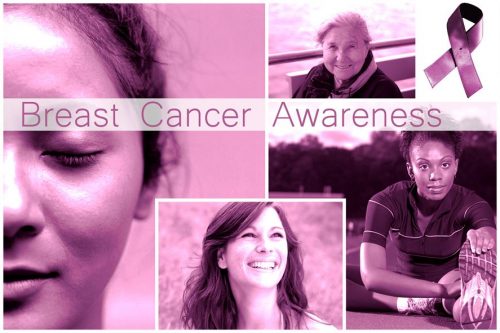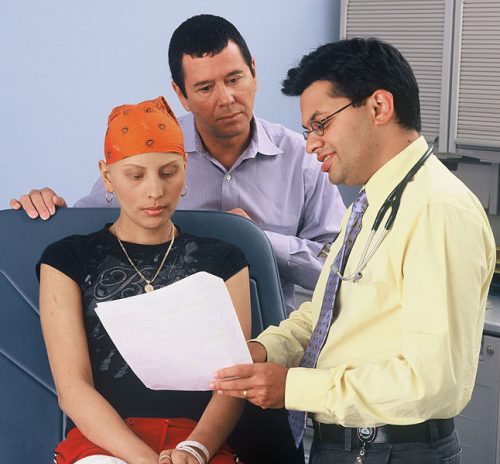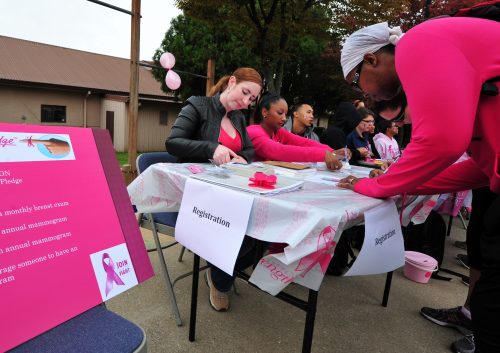This article discusses a topic that is relevant around the world. It is among the most talked-about topics, especially among women, but also among couples, families, etc.

What are the psychosocial needs of cancer patients? Know more about these psychosocial problems and requirements from cancer research.
If you are part of the oncology team, it’s important not to rely solely on counselors or therapists to bypass cancer screening and address all of your patient’s needs, including their health requirements and care. As Daisy Chow, LPC, NCC, wisely pointed out, ‘It’s true that therapy isn’t a solution for everyone, and it’s not a magical cure. Patients still need to take a proactive approach and be willing to put in the effort to improve their situation.’ However, therapists and counselors do offer a safe space for cancer patients who are going through difficult times and need to voice their concerns. Whether an individual has received an early cancer diagnosis or is already undergoing treatment, therapy can be a valuable source of support.
Part of the literature review explains that counseling services also find a trained professional to provide unbiased feedback for their psychosocial care in cancer and suggest effective treatment modalities for the whole patient. For this reason, patients are recommended to seek other services such as counseling from counselors who specialize in oncology cases.
Understanding The Mental Needs of Cancer Patients
Cancer patients – no matter how old – can choose from different forms of counseling to provide psychosocial necessities and resources based on their preferences, financial assistance, and basic necessities.
The Common Counseling Types
1. Individual Counseling
For cancer patients who widely recognize a private conversation, individual counseling is the best option to improve their knowledge and resolve some of their mental health, psychological, or behavioral issues. But Elana Schechtman-Gil LMFT reminds everyone that “The foundation of therapy for psychosocial needs is based on the relationship you build with your therapist.”
During individual counseling, the counselor will ask several personal questions that may impact post-traumatic stress disorder, then the individual would listen to what is being shared, express concern, and offer feedback and education. Feedback would also include suggesting treatment methods to help the patient’s mental health and achieve their requirements throughout their chronic diseases.

2. Group Counseling
According to research, group counseling for cancer patients consists of a number of the general population who have similar problems that meet together to share and discuss situations that pertain to that particular issue. The good thing about group counseling is that patients who feel lonely or are leaning toward depression realize that they are not the only ones fighting a difficult battle. Group counseling provides insight and comfort, particularly for psychological or behavioral requirements, from its members. “By building a list of people that you trust, with whom you can talk to in difficult times, you allow yourself a strong sense of not being alone.” David Klow, a licensed therapist explains.
For example, a breast cancer patient attending group counseling sessions finds solace in sharing her experiences with others facing similar challenges, realizing that she is not alone in her journey.
3. Family Or Couples Counseling
Cancer folks who are undergoing cancer treatment are not the only ones who are mentally and emotionally affected in terms of the psychosocial needs of cancer patients.
People who are surrounding them, especially patients’ partners and families, also suffer from the risk factors and effects of the condition on their relationship and connection. Counselors are keen on finding out specific reactions and thoughts that increase the level of stress and conflict between family members, as addressing these issues is essential for providing comprehensive psychosocial support to both the patient and their loved ones.
Issues Tackled During Cancer Counseling
A significant minority of people often wonder how counseling can help with their psychological well-being especially those who are struggling with the psychological effects of psychiatric morbidity. Whether they are getting treated for lung cancer, skin cancer, breast cancer heart disease, or any other illness. Some breast cancer or lung cancer patients and other types of cancer patients problems or challenges that are tackled during sessions are:
-
-
- Exploring what cancer has taught you
- Determine ways to cope with the diagnosis and treatment to make patients feel in control and less overwhelmed
- Contemplate workplace strategies and issues
- Manage symptoms and side effects of cancer treatment
- Help develop coping mechanisms for fear, anxiety, and depression
- Learn effective communication with the medical team
- Address concerns about finances and relationships
- Teaches the patient’s family member how to adjust and understand routine changes caused by a cancer diagnosis
-

Professional Help Is Important
A feeling of despair, emotional distress, psychological distress, emotional distress, anxiety, and depression are normal reactions to the realization of a cancer diagnosis. But if the feeling does not go away after a couple of weeks, counseling must be taken into consideration for further prevention of worse conditions. Seeking professional help is vital for patients’ cancer care needs and also necessary in learning effective ways to cope with the condition and not interfere with the routines and their quality of life.
According to national institutes experts, in addition to medicine, existing health insurance coverage and medical support care cancer care treatment remain for patients and cancer survivors alike. These psychosocial services and cancer support services are for your physical health and mental health problems. After all, these factors are part of cancer palliative care. Interventions for behavior and psychological matters like support groups that have the full support of insurance coverage are available for you. For example, a breast cancer survivor can seek emotional support from others who have the same ordeal.
Takeaway
Remember, you always have the option to ask for help especially if you feel hopeless and helpless. Living life with public health is challenging, but if you know where to turn, you’ll find comfort amidst the condition. If you want to seek clinical practice guidelines and help, you can consult a professional at BetterHelp. Try sending them a message through their Facebook page or their LinkedIn.
FAQs
What are psychosocial health requirements?
What are psychosocial needs examples?
What are the 5 psychosocial needs?
What are psychological problems?
How do you give psychological support to patients?
What is psychosocial care?
What is psychosocial care and support?
What are the psychosocial support activities?
What is the psychosocial impact of cancer?
The psychosocial impact of cancer refers to the emotional, social, and psychological effects of a cancer diagnosis on individuals and their loved ones. It encompasses emotional distress, anxiety, depression, changes in body image, strained relationships, financial stress, questions about life’s meaning, and impacts on the overall quality of life. Addressing these impacts through psychosocial care and support services is crucial for improving the well-being of cancer patients and their families.
What is psychosocial health care in cancer?
Psychosocial health care in cancer refers to a comprehensive approach that addresses the emotional, social, and psychological well-being of cancer patients, cancer survivors, and their families within the context of their overall health care. It includes services like counseling, support groups, education, and coping strategies to help individuals navigate the psychosocial challenges associated with cancer diagnosis and treatment, ultimately enhancing their overall quality of life and their experience within the healthcare system.
